News
The renovated buildings on Jelgava’s Vecpilsētas street welcome anyone interested to see and feel the ancient Jelgava, its wooden buildings, and the stories of lost streets, as well as to acquaint themselves with the skills of ancient crafts.
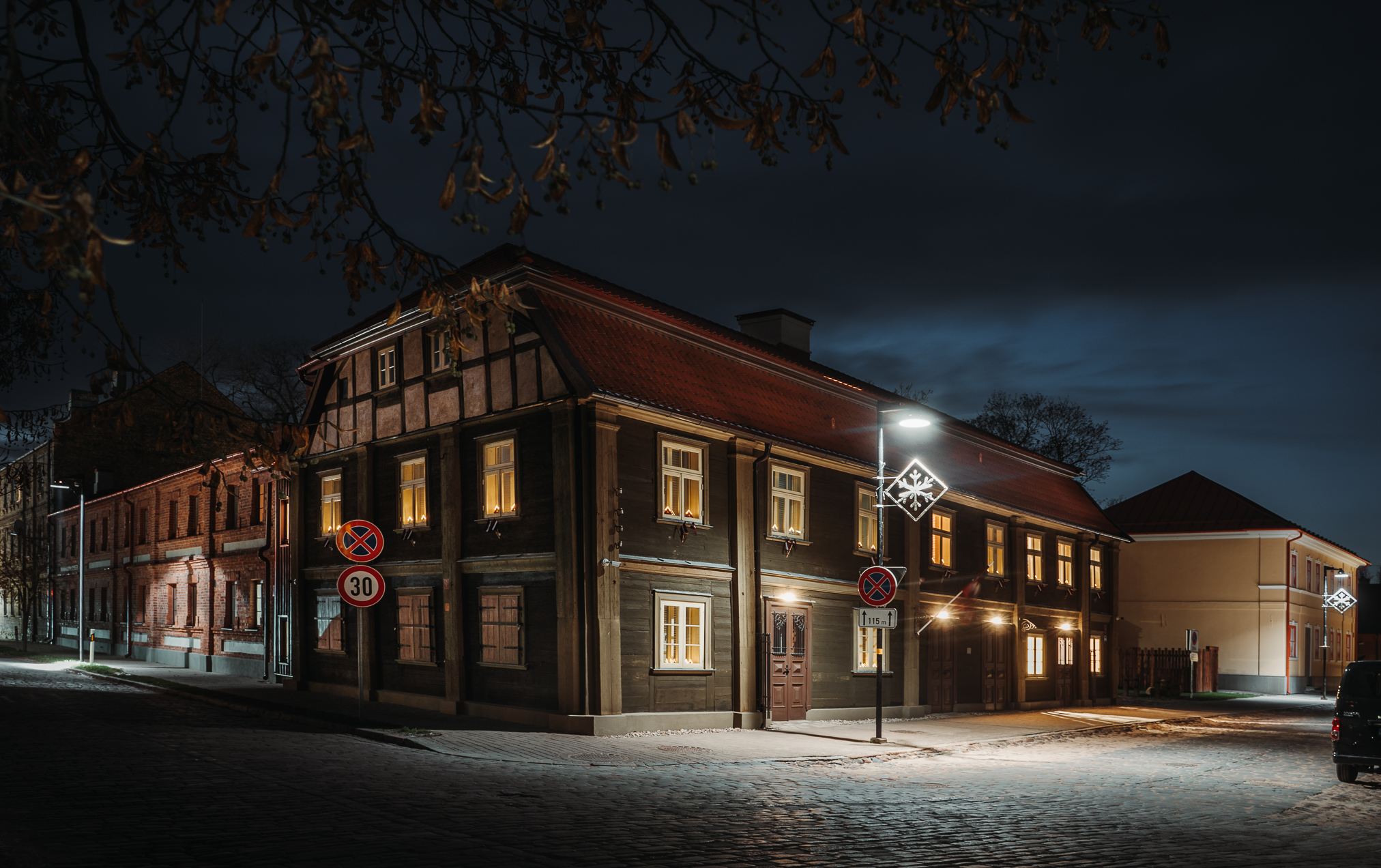
The quarter of Jelgava’s Old Town is a unique area that has survived to this day in the cityscape. It is the oldest part of the city’s development with wooden buildings that were not destroyed during World War II. The development of the area took place from the 18th to the early 20th century.
The 14th house on Vecpilsētas Street – the Jelgava Old Town House – is a nationally significant architectural monument and one of the oldest wooden residential houses in Jelgava that has survived to the present day. In the Jelgava Old Town House, there were once living rooms and spaces for the needs of a store, and heating was done using stoves and fireplaces. Water was drawn from a well, but in the 19th-20th centuries, a water pipe was installed on the street. In the courtyard of the house, there were sheds for firewood and household needs. In 2022, after extensive restoration works, the Jelgava Old Town house has come to life in a new form and now awaits visitors to showcase and tell the stories of the house and help visitors imagine the ancient times of Jelgava, its bustling streets, the clattering of horse hooves on the stone pavement, and the laughter of children in the courtyards of houses.
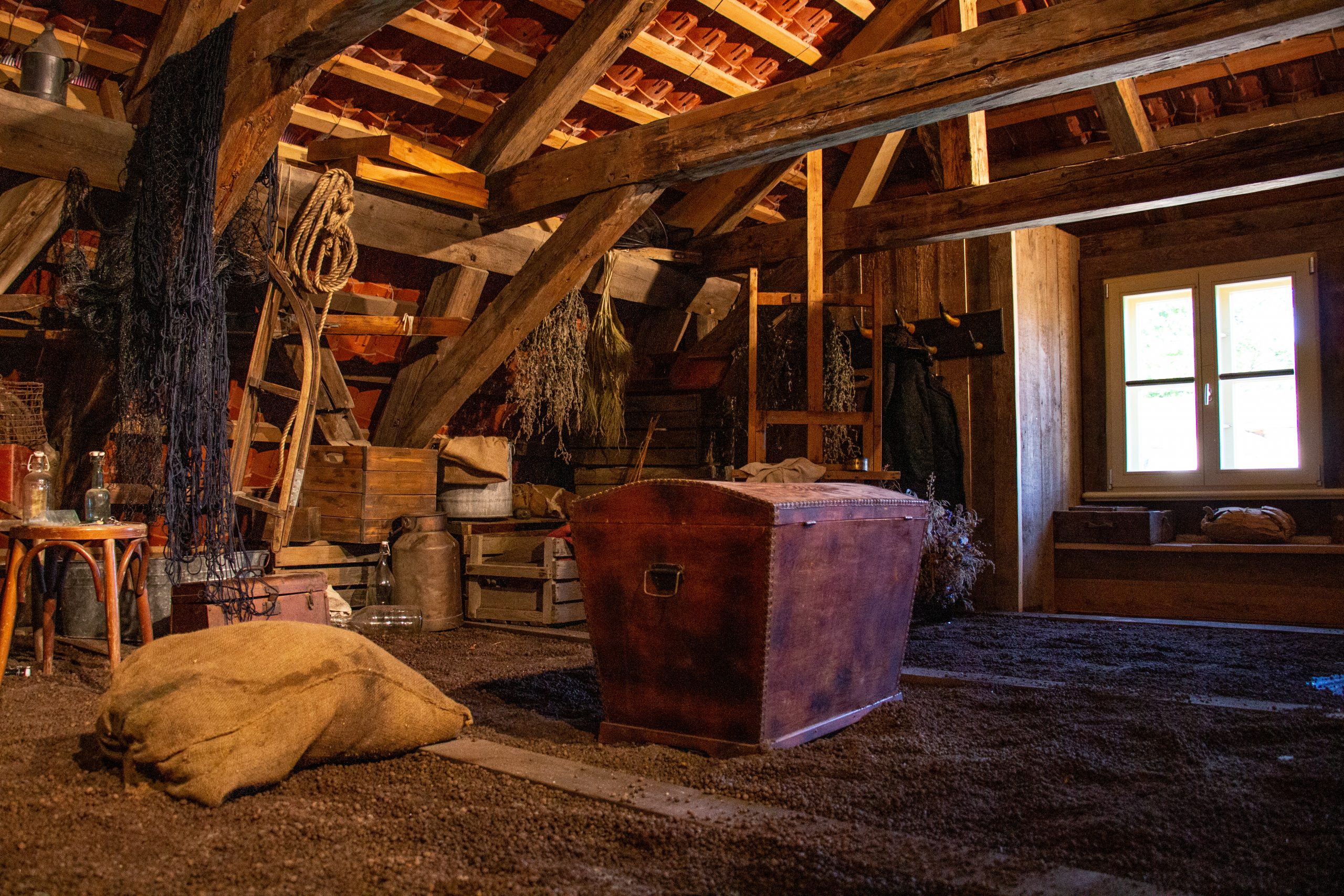
To create a more authentic atmosphere, history-approximating technologies were utilized in the process of renovating the house – existing and reclaimed building materials were maximally employed in the ceilings, walls, and floors. This way, when visiting the house, everyone can touch the ancient bricks and wooden elements in the building’s interior, observe the partially restored window sill painting, and witness how craftsmen in the 18th century crafted the ceilings. The exhibition in Jelgava’s Old Town House is arranged in a historical apartment where stories are concealed in three large treasure chests. This is an engaging attraction for anyone interested in different historical periods. The exhibition incorporates innovative and interactive solutions – video materials, animated photographs, and audio guides that transport visitors back in time through everyday sounds and visual stories. The chests and drawers encourage visitors to explore them to learn more. Visitors particularly praise the exhibition’s interactive window, which allows glimpses into the ancient courtyard of the Jelgava Old Town House and displays fragments of wallpapers found during the restoration, using multimedia to recreate the patterns of ancient wallpapers on the walls.
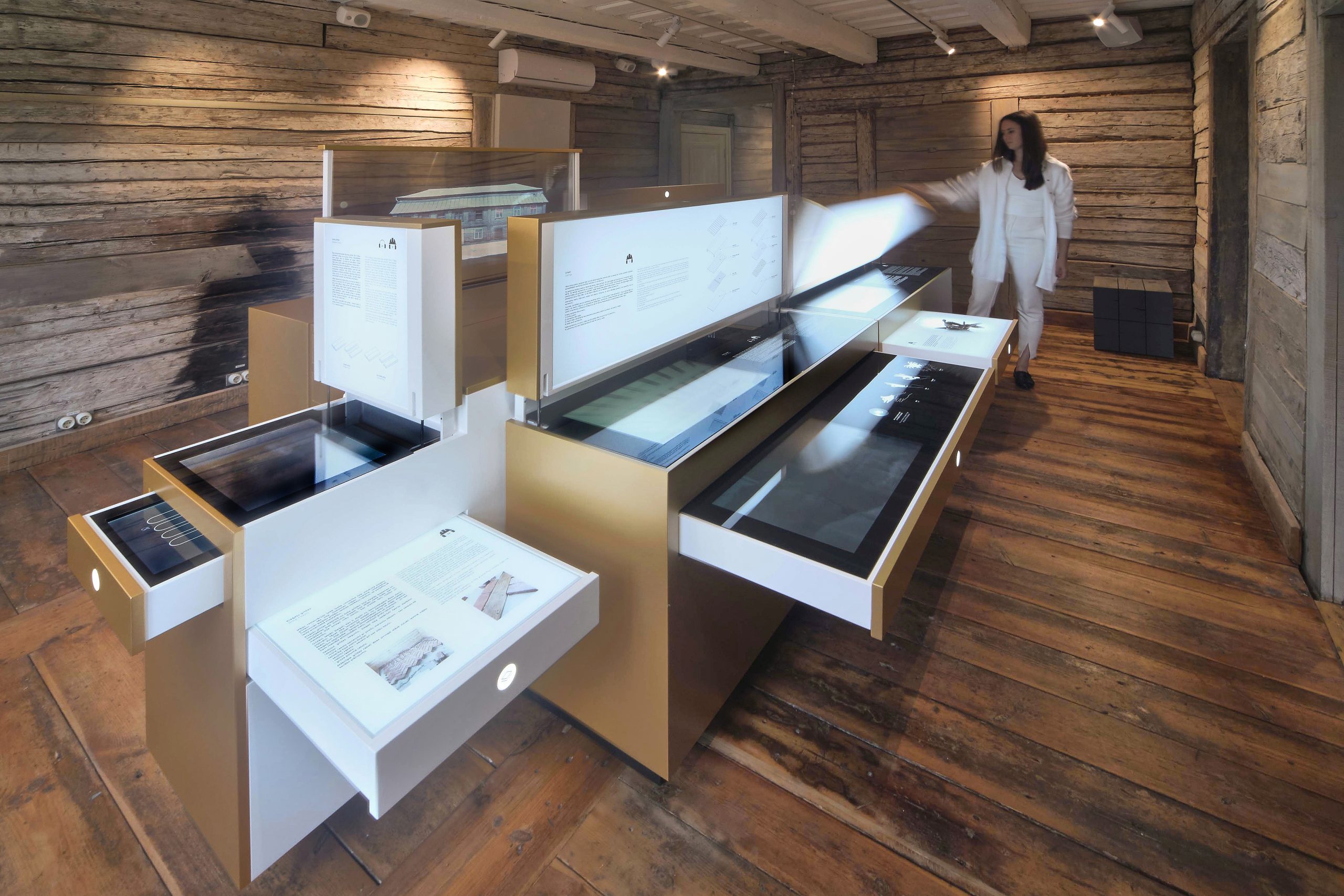
Jelgava’s Old Town House also features a seminar room for conferences, meetings, as well as various creative and social events for up to 30 people. The room is equipped with a large screen and a magnetic whiteboard. The rental fee for the room is 10 euros per hour, and the use of additional equipment is 10 euros per hour.
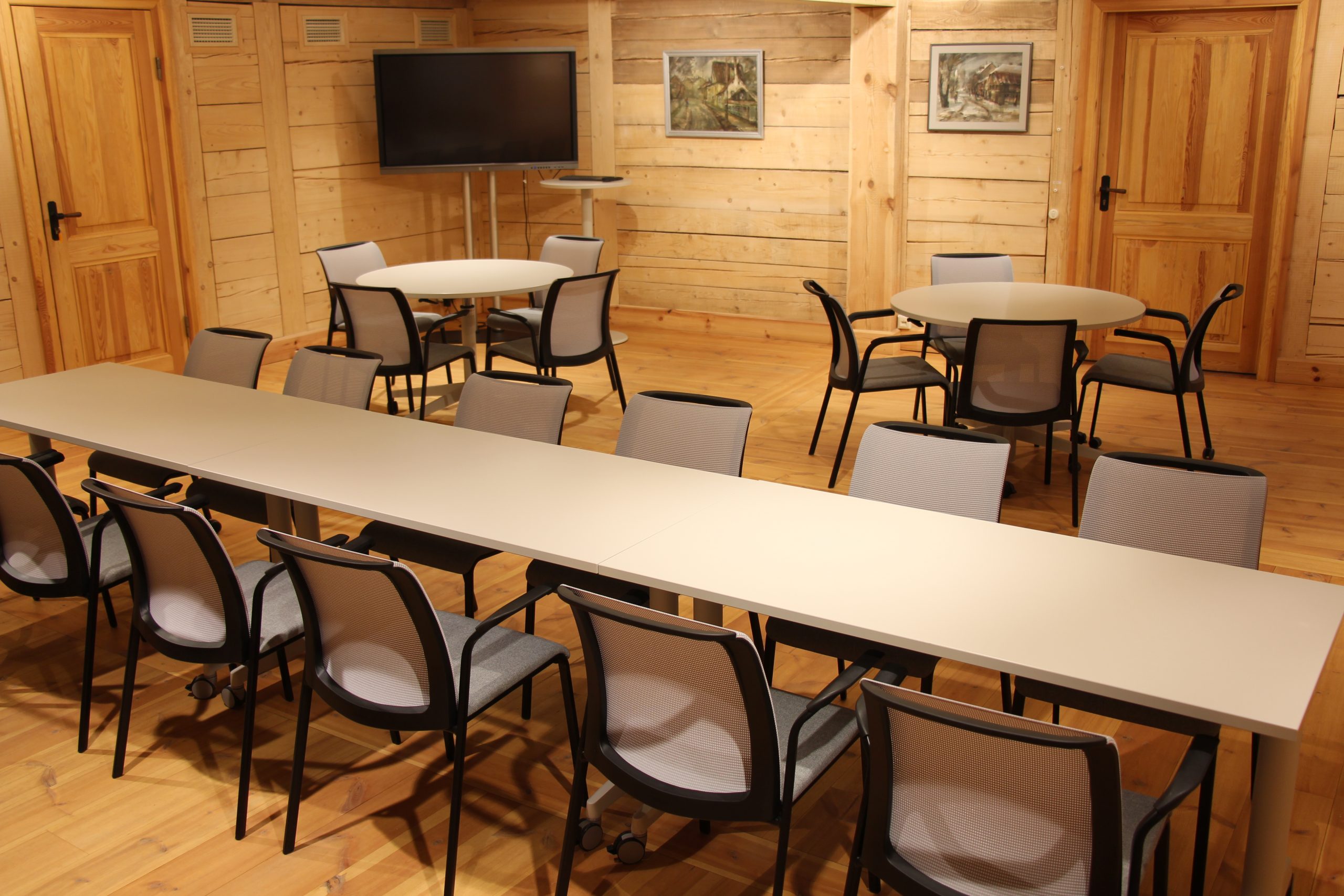
Jelgava’s Old Town House welcomes visitors from Tuesday to Saturday from 10 am to 6 pm and on Sundays from 11 am to 5 pm. Group visits are recommended to be booked in advance by phone 63005407, 27309673, or email vecpilseta@jelgava.lv. The entrance fee for adults is 4 euros, for students, retirees, and children, it’s 1.50 euros, and a family ticket costs 6 euros. Showing a Jelgava city resident card qualifies for a discount on the entrance fee.
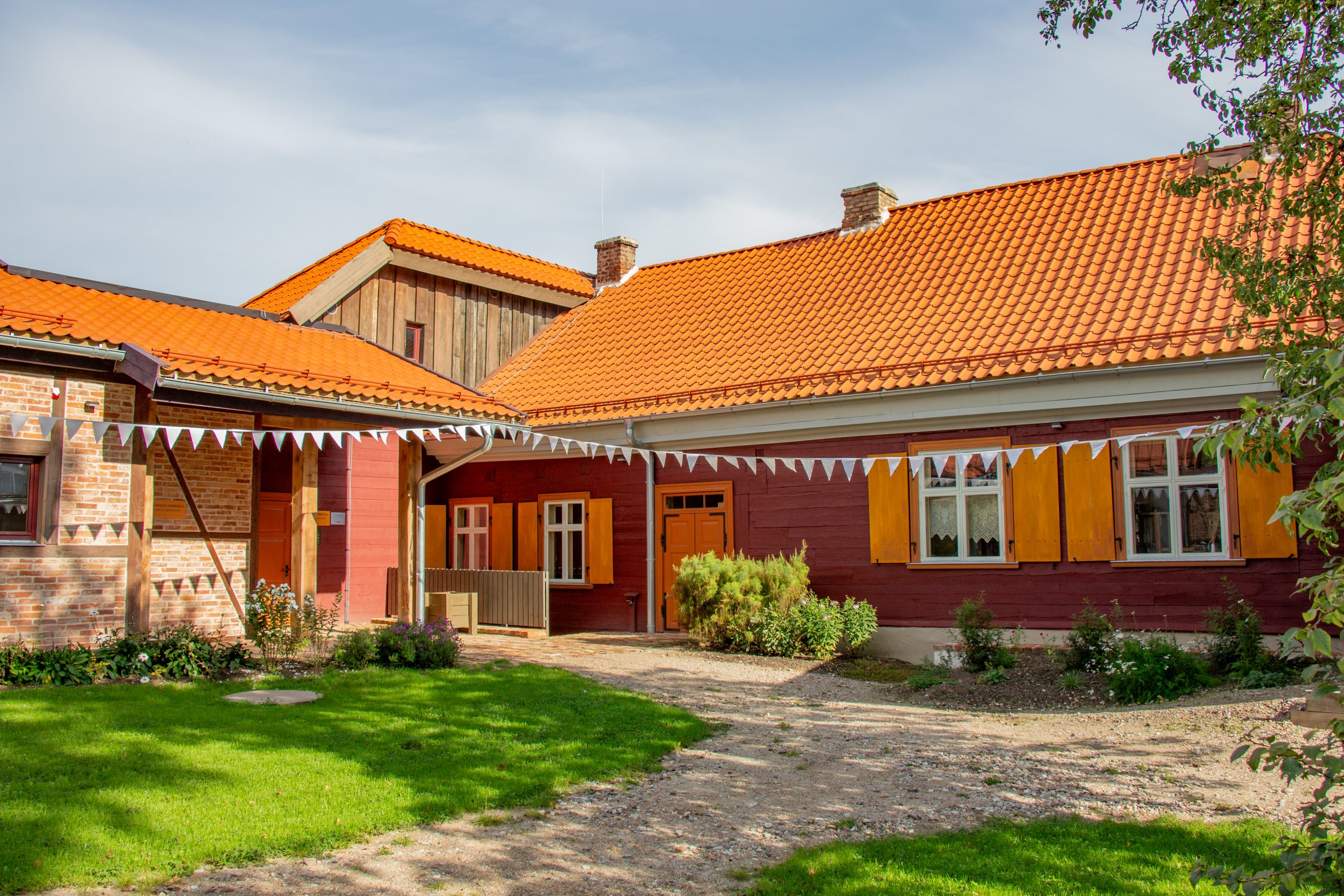
On Vecpilsētas Street 2, there is the House of Latvian traditions and crafts. Here, workshops and craft studio of “Austras raksti,” specializing in national costumes, is managed. As a result of the restoration works, the building has regained its 19th-century appearance both outside and inside. Culturally valuable wall decorations, stoves, the restored 17th-century mantelpiece, which is functional, are visible here. Visitors to the House of Latvian traditions and crafts have the opportunity to observe demonstrations of weaver’s craft on a daily basis. With prior arrangement, interested individuals can experience a guided tour, learn about the history and layout of the building, listen to stories about the residents and their activities, discover the nuances of weaving, see how national costumes are made, and even try their hand at weaving skills. In the weaver’s workshop, several different width looms are available for the production of linen, woolen, striped linen, twill, and other fabric weaving, looms with a drawstring device for weaving Zemgale patterned twill, belt looms, as well as the semi-automatic single-beam loom “Lielupes viļņi” by Zemgale native P.Viļumsons. The weaving of Zemgale patterned twill on looms with a drawstring device and the skill of weaving in Pēteris Viļumsons’ semi-automatic single-beam looms are included in the List of Intangible Cultural Heritage Values of Latvia. Enthusiasts of weaving can apply for individual weaving lessons.
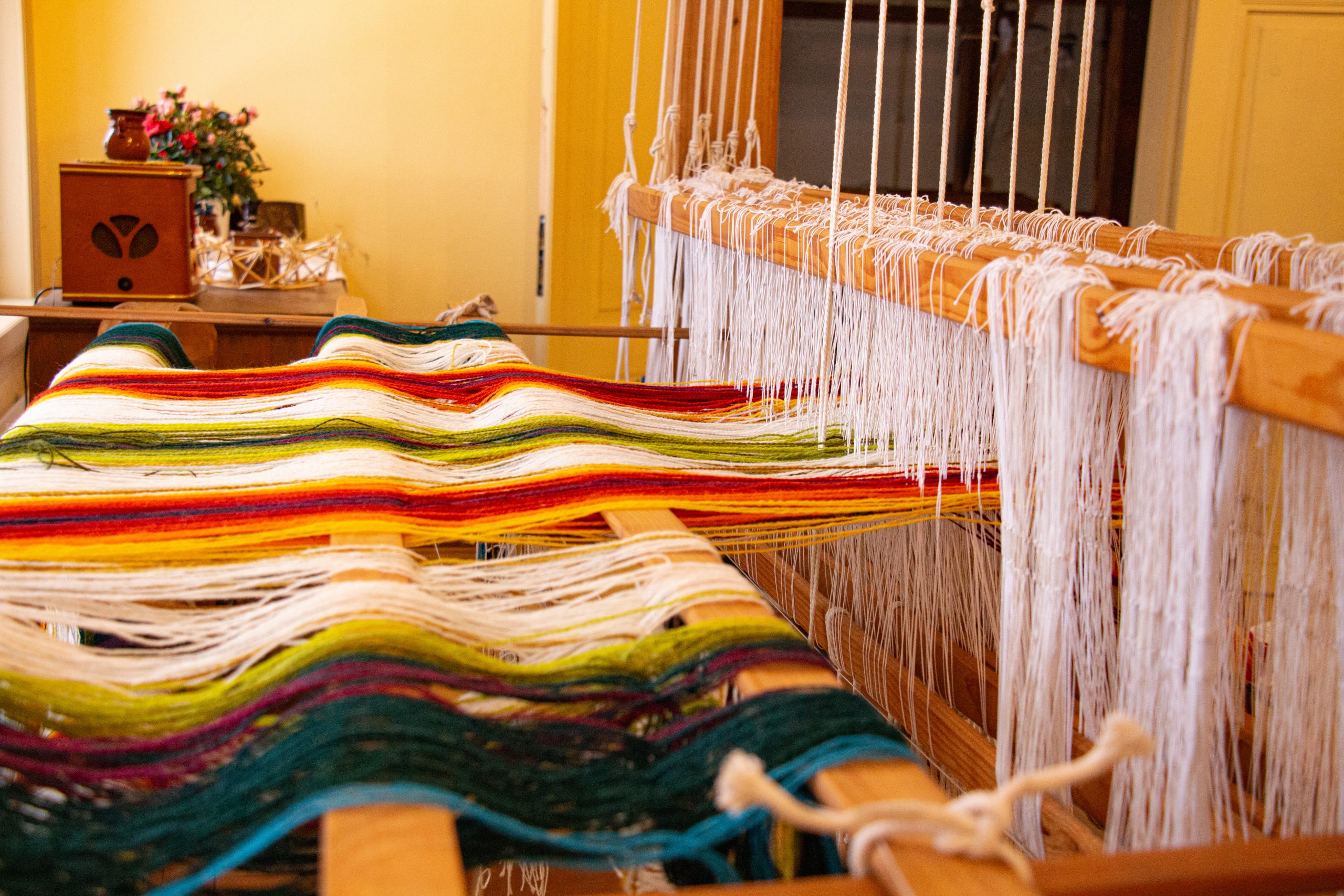
Interested individuals, with prior arrangement, can participate in workshops and educational programs related to Latvian way of life. Particularly popular among guests are the hands-on workshop for baking bread in a real wood stove, as well as pancake and hunger pancake baking workshops on a wood stove. It is also possible to sign up for gingerbread, pie, and other traditional food baking workshops, cooked on a wood stove and in a baking oven. Soup cooking in the mantelpiece is especially noteworthy, as this is the only known restored mantelpiece in Jelgava, and many have never seen this ancient chimney system. Activities are available for groups and friend gatherings, starting from 10 people. Participation in the bread baking workshop is 12 euros per person, and in the pancake workshop, it is 7 euros per person. Other thematic activities are also available, changing according to the season and holidays, such as crafting whistles and whips during the winter solstice period, candle making in February, egg coloring at Easter, and cheese making on Midsummer’s Eve. The costs of workshops vary according to the participants’ preferences and the number of participants.
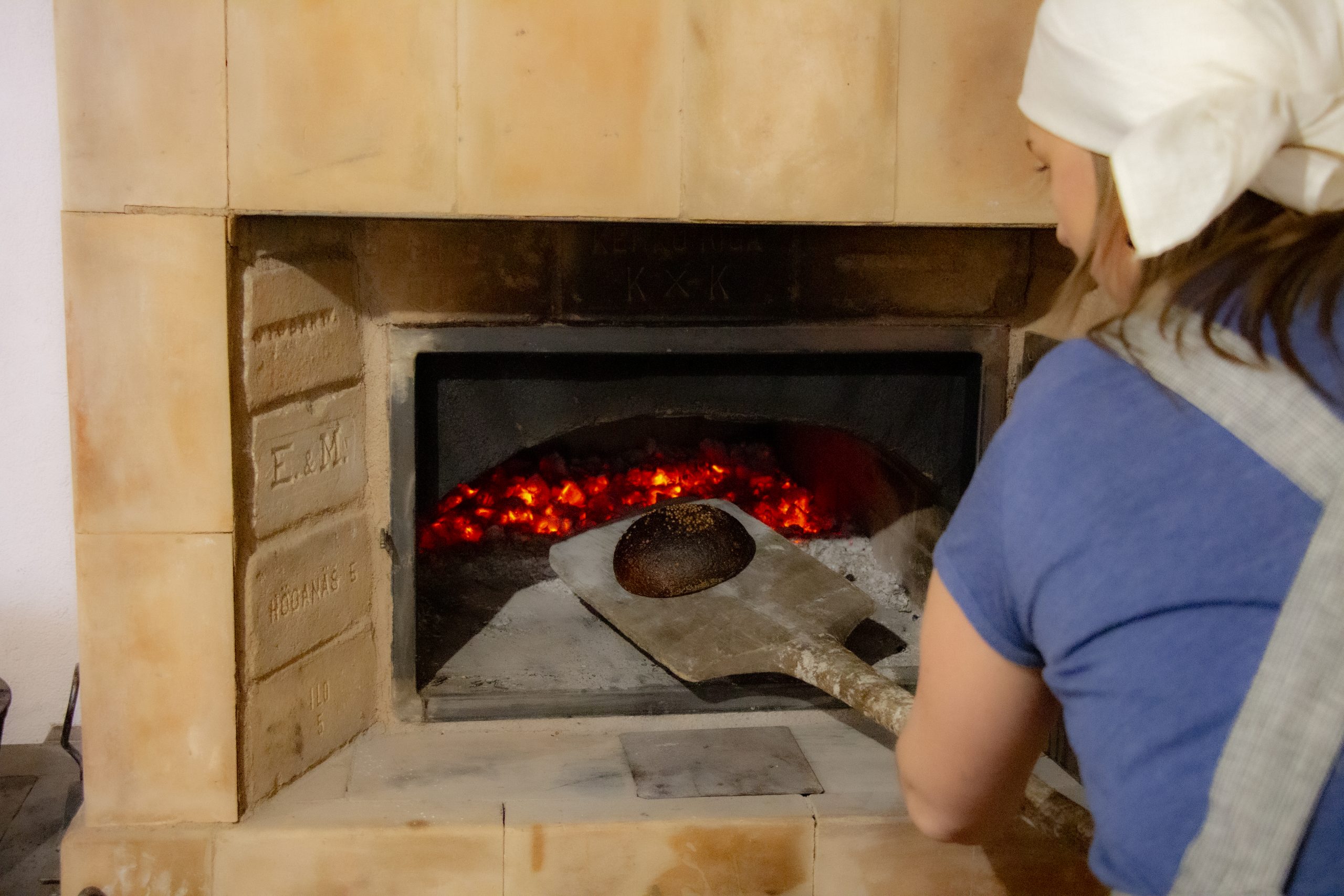
Interested parties have the opportunity to rent the courtyard of the House of Life and Crafts for various social events. The rental fee for 3 hours is 45 euros.
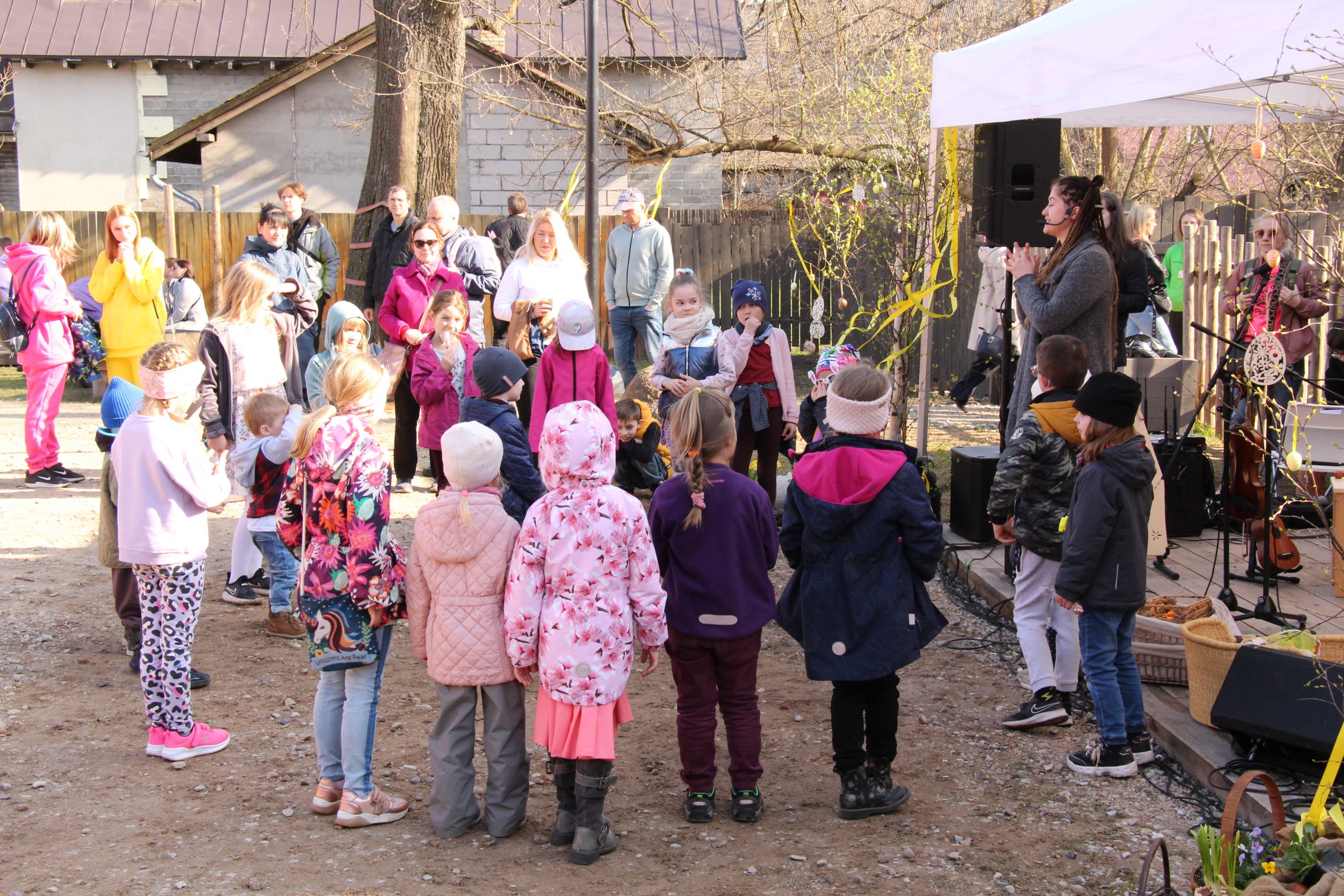
For individual visitors, the House of Latvian traditions and crafts is open from Tuesday to Saturday from 10 am to 6 pm, on Sundays from 10 am to 3 pm, and guided tours and workshops can be arranged in advance by calling 29116210 or emailing austras.raksti@gmail.com. The entrance fee for adults is 5 euros, for students, retirees, and children, it’s 2 euros, and a family ticket costs 10 euros. Individuals with an Honorary Family Card receive a 15% discount on the entrance fee.
 12.1 °C,
3.9 m/s,
76.1 %
12.1 °C,
3.9 m/s,
76.1 % 